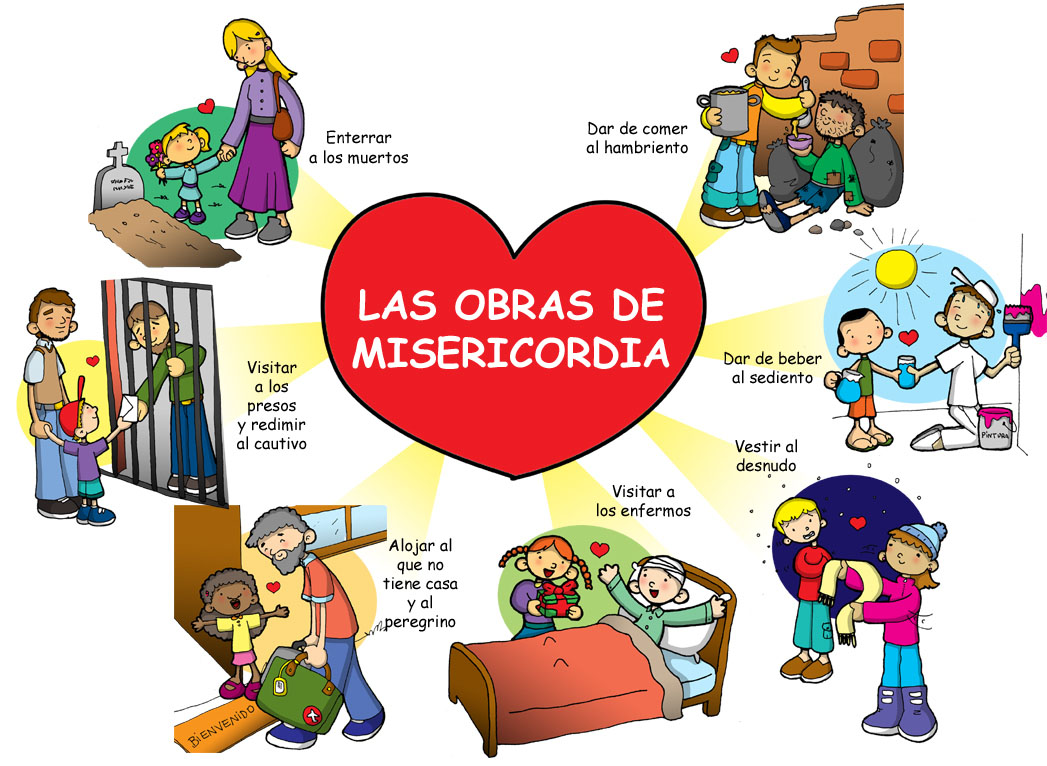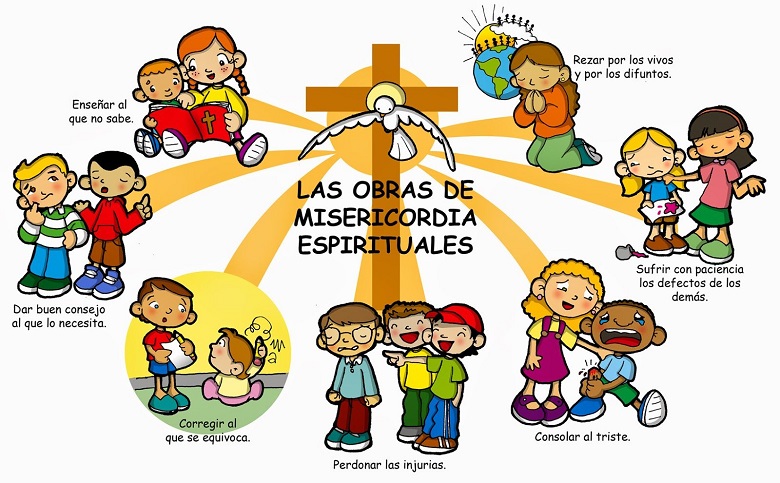If you still do not know the parable of the Bible The Good Samaritan, enter and discover this beautiful story that motivates us to be a better person.

The Good Samaritan
The parable of the Good Samaritan is the answer that Jesus gives to an interpreter and student of the Law who intends to get to heaven on his own merits, by means of the Law. Our Lord replies that in order to get to heaven on his own merits he will have to to fully comply with each of the mandates established in it, without making mistakes.
The Word of God warns us that there is no one who fulfills the Law, there are no righteous on Earth, not even one. The only human being who could fulfill the statutes of God established in the Torah was Jesus Christ.
The story of the good samaritan
The parable of the Good Samaritan tells us the story of a man walking down a road who was the victim of a robbery, in the event he was beaten, to the point that he was left for dead. Many important, recognized and wealthy people who passed through the place, saw him and did not help him.
At one point a Samaritan passed by, a humble person, without recognition, felt the need to help that man attacked on the ground. He gives her help, giving her shelter, food and care. In order to scrutinize his teachings and what each character symbolizes, we must read the biblical passage. Let's read:
Saint Luke 10:25-37
25 And behold, a lawyer stood up and said, to test him: Master, by doing what will I inherit eternal life?
26 He said to him: What is written in the law? How do you read
27 He answered and said, You shall love the Lord your God with all your heart, and with all your soul, and with all your strength, and with all your mind; and your neighbor as yourself.
28 And he said to him: You have answered well; do this, and you will live.
29 But he, wanting to justify himself, said to Jesus: And who is my neighbor?
30 Jesus answering said: A man was going down from Jerusalem to Jericho, and he fell into the hands of robbers, and they robbed him; and wounding him, they went away, leaving him half dead.
31 It happened that a priest came down that road, and seeing him, passed by.
32 Also a Levite, coming near that place, and seeing him, passed by.
33 But a Samaritan, who was on his way, came near him, and seeing him, was moved to mercy;
34 and approaching, he bandaged his wounds, pouring oil and wine on them; and putting him on his mount, she took him to the inn, and cared for him.
35 Another day when leaving, he took out two denarii, and gave them to the innkeeper, and said: Take care of him; and whatever you spend extra, I'll pay you back when I get back.
36 Who, then, of these three do you think was a neighbor to the one who fell into the hands of the robbers?
37 He said: The one who showed mercy to him. Then Jesus said to him: Go, and do the same.
Romans 3: 10
10 As it is written:
There is no righteous, not even one;
Characters of the parable
Through the history of this parable we can distinguish some characters. Let's see:
The story tells of a man (apparently a Jew) who came from Jerusalem. We can assume that he came from worshiping God. As we can read in the parable of the Good Samaritan, he came along the path with confidence. Trusting in himself and not in God.
Thieves come (Satan and his demons) and wound him, leaving him almost dead on the road. The priest and the Levite arrive, who according to the Parable come from the city of Jerusalem (the city where God was worshiped in the Temple), we assume that they came from doing their own service activities.
The priest represents the one who knows the Word of God, but who does not put it into practice. On his part, the Levite is the one who lives under the Law and considers that the dying person is like this as a consequence of his own sin and that he must assume the consequences. So no one helps you.
However, a good Samaritan comes and points out that he was on his way (Isaiah 55:8) and helps that dying man. The Word of God tells us that God's ways are not our ways, and that the Lord can come to our aid at any time of difficulty.
This Good Samaritan adds wine that symbolizes the Blood of the Lamb of God and anoints oil that symbolizes the Holy Spirit of God. It is here that the Christian must understand that only help comes from our Lord Jesus Christ (Hebrews 12:1-2).
Then this help takes you to the inn (The Church of Christ) and takes care of you, there it washes the wounds that life has given you, it places the bandages that represent the holy garments of the Christian.
There he puts you in the hands of the innkeeper (the pastor of the Church) to take care of you. He gives him two denarii (The Word of God made up of the Old Testament and the New Testament). The rest of the money would be paid to him at his return (the second coming of Christ: rewards). In short, the characters in the parable of the Good Samaritan are summarized in:
- The priest: Man who claims to teach the things of God, but does not practice them.
- Frock coat: Lawman
- Samaritan: symbolizes Jesus
- Injured man: All sinners and believers
- Burglars: Satan and his spiritual hosts
- Accept: The holy ghost
- Wine: The Blood of the Lamb of God
- Meson: The Church (the word inn in Hebrew means lodging)
- Innkeeper: Pastor
- Sales: holy vestments
- Denarii: Old and New testament
- Return: The Second Coming of Christ
Teaching of the Good Samaritan
The parable of good samaritan teaching it teaches us that salvation and consequently going to the Kingdom of God have been given to us by grace. It is a gift, a gift that God has given us. So by work no one will go to heaven.
Through this parable, Jesus sought for that interpreter of the Law to understand that it is not by works, but by grace that we can obtain salvation. The need for repentance of our sins.
At this point, it is important to understand that good works are the result of fellowship with God, not because I am good, but because God has put those good works beforehand. Therefore, it is not the way to enter heaven.
Ephesians 2: 8-10
8 For by grace you are saved through faith; and that not of yourselves: it is the gift of God; 9 not by works, so that no one can boast.
10 For we are his workmanship, created in Christ Jesus for good works, which God prepared beforehand for us to walk in them.
The law
So what is the Law? The law is described through three things: it represents the entire Word of God to distinguish the books of Moses from the other books; Jesus mentioned the Law and the prophets.
The Law is the Pentateuch, the first five books of the Bible written by Moses. The law embraces the psalms and the books written by the prophets.
According to the Word of God, there was Law for the holidays (ceremonial laws how we should worship it - from Exodus 24 to 31), for the holy days, for its sacrifices, for the diet, civil laws (how to govern ourselves Exodus 21 to 24 ) and to build the tabernacle. Moral laws what God says what is good and bad – the commandments. Exodus 20 and 26.
Before the Jewish people had the Law, they lived under the Law of conscience (Romans 2:12-15). Upon rescuing them from Egyptian slavery, the Lord took them to Mount Sinai and because of their murmuring, nonconformity, and sin, the Lord gave them the Law and its statutes (Exodus 15:24-26)
The Jewish people decided to live under the Law. The Word of God warns that he who lives under the Law is guilty of all if he breaks a single command (James 2:10-12). For example, the interpreter of the Law who tries to test Jesus believes that through the Law he would enter heaven by works.
For Christians, the only valid Law is the moral Law contained in the Ten Commandments. Living under the Law does not cleanse sin, on the contrary, it reveals to us how sinful we are (Romans 3:19-20). The Law leads us to seek the salvation that we find in Grace, on Calvary's Cross (Romans 5:20).
The grace
Grace is defined as the acceptance, the receiving of undeserved love from a person. Biblically, it is also related to an unmerited favor that someone superior does towards an inferior person.
When referring to the divine grace of God towards humanity, it is the gift, favor, that God has given us without deserving it by providing us with salvation through faith in Jesus Christ, in the sacrifice that He made for us on the cross of Calvary dying in our place.
When we realized how sinful we were, the Grace of God abounded (Romans 5:20-21). Grace is unmerited favor, which we do not deserve.
Grace is the gift we have received through Christ's death on the cross who took our place (John 3:16; Romans 6:23; Romans 3:19-31).
At this point, when asked by the interpreter of the Law about what we can do to win heaven, the clear answer is nothing. It is by the grace of God.
Romanos 3: 19-26
19 But we know that everything the law says, it says to those who are under the law (non-Christians), so that every mouth is closed and the whole world is under the judgment of God; 20 since by the works of the law no human being will be justified before him; because through the law is the knowledge of sin.
21 But now, apart from the law, the justice of God has been manifested, testified by the law and by the prophets; 22 the righteousness of God through faith in Jesus Christ, for all who believe in him. Because there is no difference 23 for all have sinned, and fall short of the glory of God, 24 being justified freely by his grace, through the redemption that is in Christ Jesus, 25 whom God put as a propitiation through faith in his blood, to manifest his justice, because he had overlooked, in his patience, past sins, 26 with the aim of manifesting his justice in this time, so that he may be the just one, and the one who justifies the one who is of the faith of Jesus.
For Christians, we find that salvation, our faith in Jesus Christ, is the way to the Kingdom of Heaven (John 4:16). It is not for work. The Apostle Paul leads us to conclude the following:
Romans 3: 28
28 We conclude, then, that man is justified by faith apart from the works of the law.
The Lord Jesus Christ assures the expert of the law that if he loves every neighbor, it will be possible. For the human being this condition is impossible to fulfill, at some point in our lives we have sinned against a brother, neighbor, co-worker. If we lived under the Law we would be dead in our trespasses and sins.
The good Samaritan who loved all mankind and died for the love and ransom of all was our Lord Jesus Christ.
the christian life
The life of the Christian is characterized by the guidance of the Holy Spirit. Life in communion with our Lord bears fruit. By the fruits of the Holy Spirit we understand the result of the work of the Third Person in the lives of Christians. This is a consequence of sowing the seed of the Word of God. For it to bear fruit we must water it and cultivate it.
So, when a Christian has communion with the Word of God and is guided by the Holy Spirit, he develops qualities or virtues that distinguish us as Christians.
Each of these qualities are the fruits of the Holy Spirit. These fruits are manifested in the bodily and spiritual works that we perform in our Christian lives (Romans 12:9-21; 1 Timothy 1:5; 1 Peter 1:22; 1 John 3:17-18; 1 John 4:7- 11; Galatians 6:10; Matthew 15:20; Matthew 25: 34-40; Proverbs 6:6-11; Proverbs 12:27; Luke 16:10; 2 Timothy 1:6; John 5:35; Galatians 5: 22)
It is important to know that the Christian life bears fruit, so we invite you to read the following link entitled Fruits of the Holy Spirit
The teaching of the parable of the Good Samaritan does not allow any person, regardless of race, gender, nation, culture that needs our help to be our neighbor.
James 2: 14-17
14 My brethren, what will it profit if someone says he has faith, and has no works? Can faith save him?
15 And if a brother or sister is naked, and needs daily maintenance, 16 and one of you says to them: Go in peace, warm yourselves and be satisfied, but you do not give them the things that are necessary for the body, what good is it?
17 So also faith, if it does not have works, is dead in itself.
works of mercy
Mercy is the quality that a person has in the face of the condition, needs and suffering of other people. This quality is a product of communion with God.
It refers to kindness, benevolence, goodness and charity that we feel and show towards others. Cover some fruits of the Holy Spirit. For example, charity is defined as the love we have for our neighbor. As Christians we know that this is one of the commandments that God left us that we must fulfill.
Kindness is kindness is one of the virtues that is most related to the conduct of each of the Christians. On the other hand, kindness is what makes our hearts regret when we do something that displeases the Lord. As Christians we are our path must be full of light, good deeds and justice.
A merciful Christian has these fruits in his daily life (Exodus 33: 18-19; 2 Chronicles 6: 40-41; Colossians 3: 12-13; Romans 2:4-5; 1 Corinthians 13:4-8; Matthew 22 :37-40; Luke 6:36)
As a product of our communion with God, we do different works that in the Christian world define them as corporal works. Among them, we can mention the following:
- Give food to those who are hungry, as well as give drink to those who are thirsty.
- Another of the works that Christians do is to give lodging to the pilgrim (Hebrews 12:28; 13:1-2).
- visit the sick
- Go to prisons to preach the gospel
We Christians also do spiritual works of mercy. Among these works can be mentioned:
- Bring the word of God to those who do not know it
- Give good advice to those who need it
- Correct the one who is wrong
- Forgive the one who offends us
- Give comfort to those who are sad
- Patiently tolerate the shortcomings of others
- pray for others
Now, we leave you this beautiful audiovisual material so that your children can listen to the parable of the Good Samaritan







